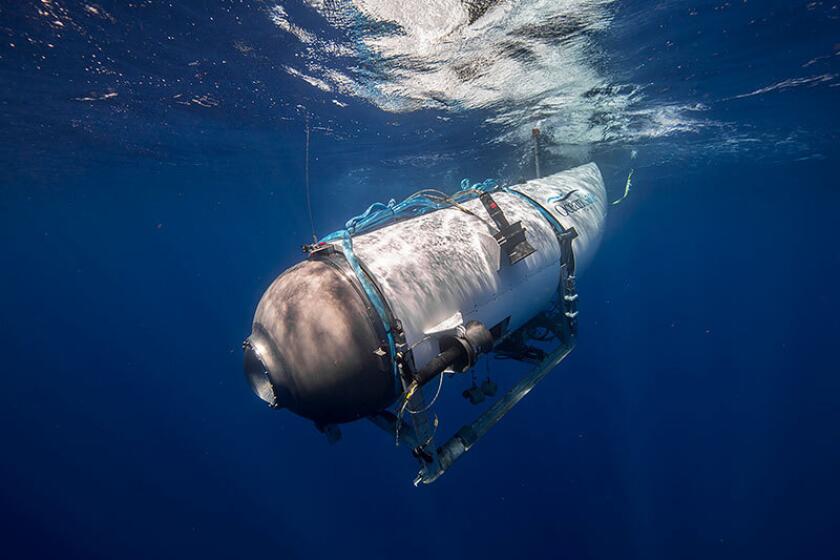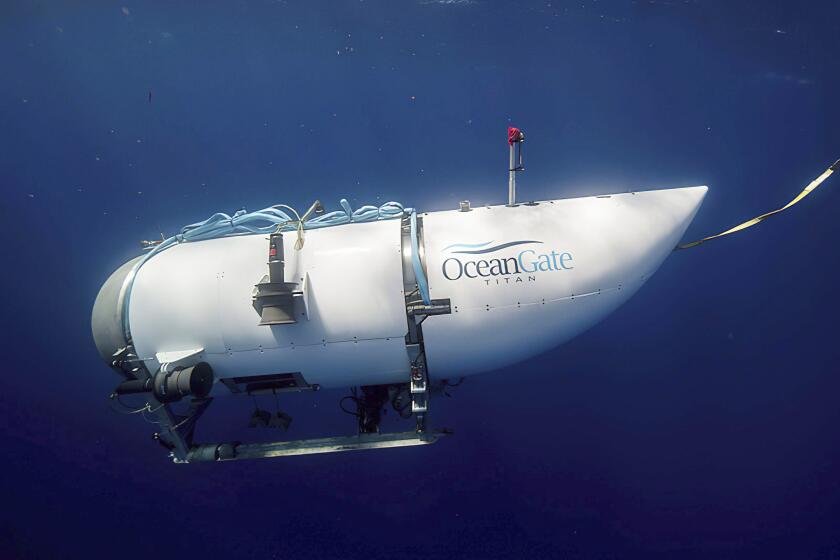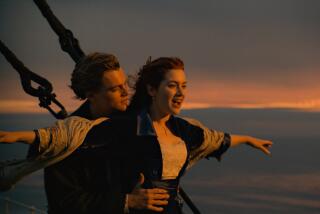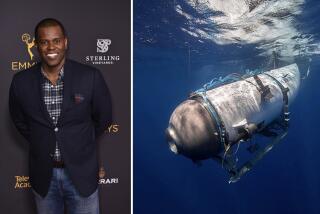James Cameron says Titan submersible passengers likely had warning just before implosion
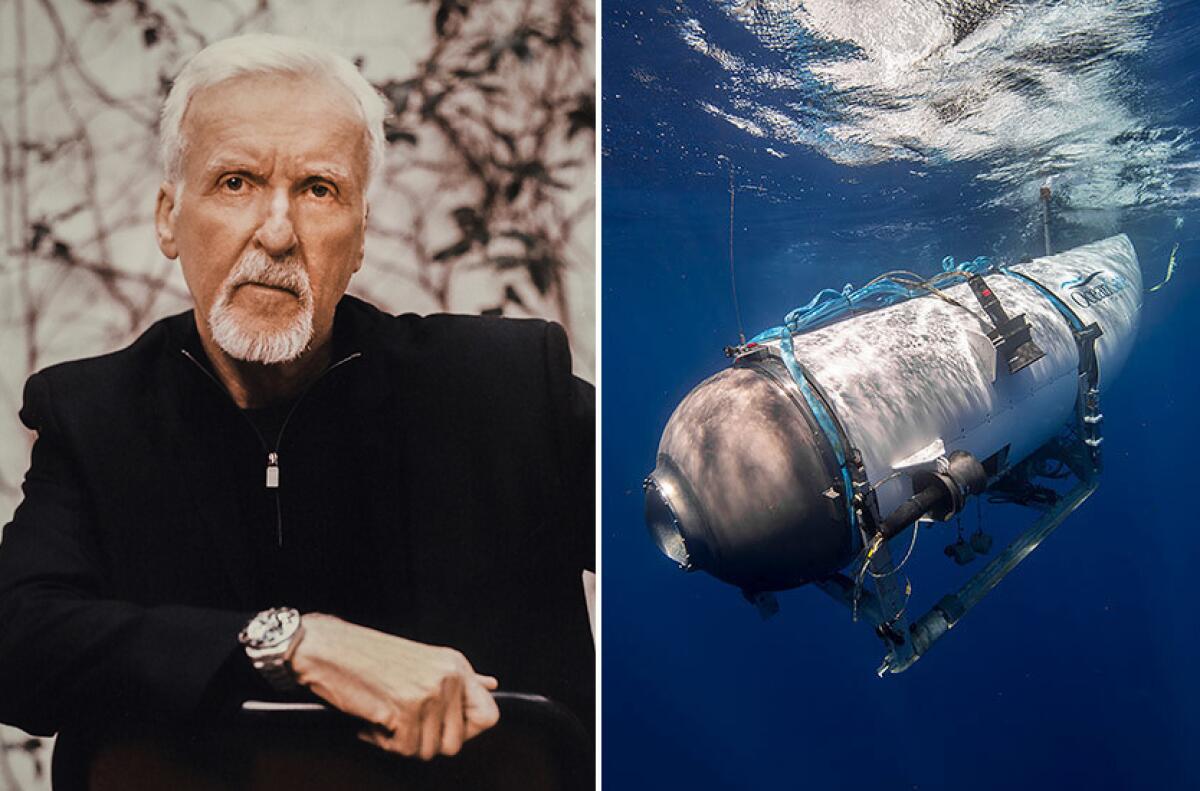
- Share via
“Titanic” director James Cameron said during an ABC News interview that one of his longtime friends was among the passengers on the tourist submersible Titan and that sensors likely warned of the disaster just before it occurred. All five aboard were killed in a “catastrophic implosion, officials said.
After OceanGate Expeditions released a statement Thursday saying that all five passengers’ lives had “sadly been lost” and the company confirmed that the debris found was indeed from the missing submersible, Cameron weighed in on the tragedy.
“This OceanGate sub had sensors on the inside of a hull to give them a warning when it was starting to crack,” he told ABC News. “And I think if that’s your idea of safety, then you’re doing it wrong. They probably had warning that their hull was starting to delaminate, starting to crack. ... [W]e understand from inside the community that they had dropped their ascent weights and they were coming up, trying to manage an emergency.”
The director of the 1997 blockbuster “Titanic” is a longtime member of the diving community, has experience designing submarines able to withstand the depths that the Titan could not and has ventured down to the wreck of the Titanic 33 times himself.
Cameron described implosion as a “violent event,” and he said engineers typically focus first and foremost on the submersible design maintaining structural integrity against pressure that increases with depth.
The five people aboard a submersible that vanished on a trip to explore the Titanic wreckage have died after a catastrophic implosion, the U.S. Coast Guard says.
“People in the community were very concerned about this sub,” Cameron told the network. “A number of the top players in the deep submergence engineering community even wrote letters to the company, saying that what they were doing was too experimental to carry passengers and that it needed to be certified. I’m struck by the similarity of the Titanic disaster itself, where the captain was repeatedly warned about ice ahead of his ship and yet he steamed at full speed into an ice field on a moonless night and many people died as a result.
“For us, it’s a very similar tragedy where warnings went unheeded. To take place at the same exact site with all the diving that’s going on all around the world, I think it’s just astonishing. It’s really quite surreal.”
The Times obtained the 2018 letter privately written to Stockton Rush, the chief executive of OceanGate, who was among those who died in the implosion. The manned underwater vehicles committee at the Marine Technology Society wrote to Rush, stressing the need for a third-party safety review of OceanGate’s submersibles.
“Our apprehension is that the current experimental approach adopted by OceanGate could result in negative outcomes (from minor to catastrophic) that would have serious consequences for everyone in the industry,” the letter stated.
William Kohnen, chairman of the committee, told The Times that OceanGate “raised a number of eyebrows.”
Also in 2018, David Lochridge, a former OceanGate employee, sued the company for terminating him after he raised safety red flags, “particularly OceanGate’s refusal to conduct critical, non-destructive testing of the experimental design of the hull.” Lochridge specified that its hull monitoring system would detect failure “often [only] milliseconds before an implosion.”
He said he disagreed with Rush’s decision to “subject passengers to potential extreme danger in an experimental submersible.”
Long before a submersible vanished on an expedition to explore the wreck of the Titanic, concerns were raised about the safety of the vessel.
Cameron also told ABC News that he was mourning the death of French Titanic explorer Paul-Henri “P.H.” Nargeolet, a longtime friend who was aboard the Titan submersible.
“It’s really quite surreal, it’s just astonishing,” he said. “P.H., the French legendary submersible dive pilot, was a friend of mine. It’s a very small community, I’ve known P.H. for 25 years.
“For him to have died tragically in this way is almost impossible for me to process.”
More to Read
The biggest entertainment stories
Get our big stories about Hollywood, film, television, music, arts, culture and more right in your inbox as soon as they publish.
You may occasionally receive promotional content from the Los Angeles Times.
